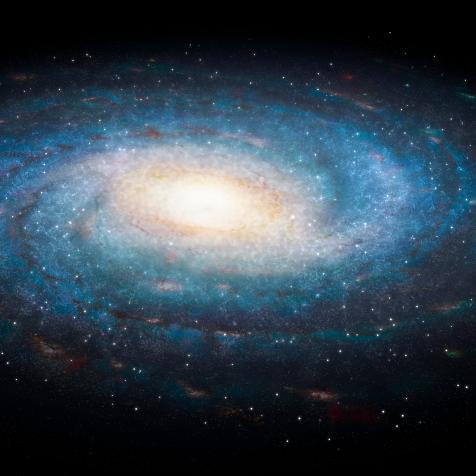
Getty Images
Darkness Is Faster Than the Speed of Light
Does darkness really have a speed?
Nothing's faster than the speed of light. Except the speed of dark. That might sound like the tagline of a grim and gritty movie that's trying way too hard, but it also happens to be true.

Shutterstock
Shadow Racing
This is a little hard to wrap your head around, but shadows can move faster than the speed of light, even though nothing can move faster than the speed of light. In a second, we'll explain how exactly that's possible without breaking the most fundamental law of physics. But first, this thought experiment might make things clearer.
Imagine you have a light that's powerful enough to reach the planet Jupiter. Imagine also that it casts that beam in a cone that's broad enough to cover the entire diameter of the planet. When you pass your finger over the lens, the shadow will cross the entire diameter of the planet — a distance of 86,881 miles (139,821 kilometers). The speed of light is 186,000 miles per second (299,338 kilometers per second). So if it takes you less than half a second to move your hand that distance, then that shadow will have "broken" the speed of light.
Shining a Light on the Subject
So, remember how we said that nothing can move faster than the speed of light? Well, that's the key. Shadows aren't anything. Shadows are the absence of something — specifically, photons, or particles of light. Since there's nothing that's actually traveling the distance, the only thing that's "moving" is an area where photons aren't. There's no information that's being transmitted faster than light, only a blockage of information. That means your interplanetary shadow-puppet show doesn't break any physical laws — only the hearts of your interplanetary audience.
This article first appeared on Curiosity.com.


















